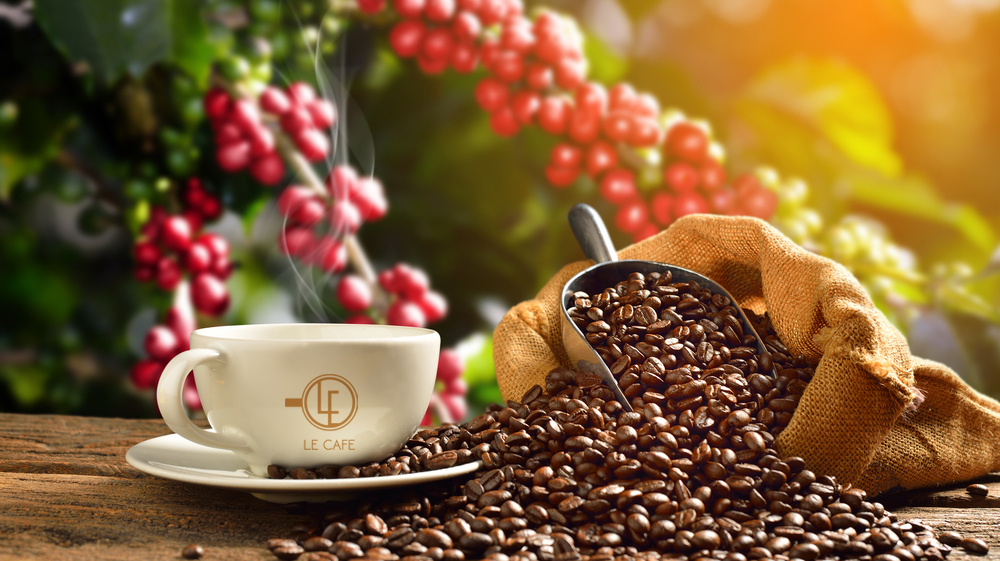About American Coffee: A Brew of History, Culture, and Taste
When it comes to coffee, the world is a diverse and delightful place. From the robust espresso of Italy to the silky Turkish coffee, each region has its own unique approach to this beloved beverage. Among these myriad coffee traditions, American coffee stands out for its simplicity, ubiquity, and cultural significance. In this article, we will take a deep dive into the world of American coffee, exploring its origins, evolution, and the role it plays in the daily lives of millions.
The Origins of American Coffee
The story of American coffee begins with its introduction to North America in the 17th century. Coffee’s journey to the New World was closely intertwined with the development of the American colonies and the growth of trade networks.
Early Coffee in Colonial America
Coffee was not initially a popular beverage in the American colonies. In the early 1600s, when coffee first made its way to North America, it faced stiff competition from tea. The English, who had a strong presence in the colonies, favored tea, and it was the beverage of choice for most colonists.
One reason for coffee’s slow adoption was the availability of coffee beans. Coffee beans had to be imported, which made them more expensive than tea leaves, which could be easily grown in the colonies. Additionally, the brewing methods for coffee were still relatively unknown, and many colonists were uncertain about how to prepare it.
The American Revolution and Coffee
The turning point for coffee in America came during the American Revolution (1775-1783). As tea became increasingly associated with British rule, many American patriots boycotted it in favor of coffee. Coffeehouses, which had previously been few and far between, began to pop up across the colonies. These coffeehouses became gathering places for revolutionary discussions, and coffee became a symbol of American independence.
Westward Expansion and Cowboy Coffee
The 19th century saw the westward expansion of the United States, and coffee played a crucial role in the lives of pioneers and cowboys. “Cowboy coffee,” as it came to be known, was a simple and rugged brew. Ground coffee was mixed with water and boiled over an open flame. The grounds were left to settle at the bottom of the pot, and the resulting coffee was strong and hearty, providing much-needed warmth and caffeine to those on the frontier.
American Coffee Culture
The coffee culture in the United States has undergone significant transformations over the years, reflecting shifts in society, technology, and consumer preferences.
The Rise of Coffee Chains
The 20th century brought about the proliferation of coffee chains in America. Names like Starbucks, Dunkin’, and Peet’s became household names, and their influence extended far beyond coffee. These chains introduced specialty coffee drinks, flavored syrups, and an array of pastries and snacks. The concept of the “coffee shop” evolved from a simple place to enjoy a cup of joe to a social hub and workspace.
Starbucks, in particular, played a pivotal role in shaping American coffee culture. With its Italian-inspired coffee drinks and inviting ambiance, Starbucks introduced Americans to the idea of coffee as an experience, rather than just a beverage.
The Specialty Coffee Movement
In recent years, there has been a resurgence of interest in high-quality, artisanal coffee. The specialty coffee movement has gained momentum, with coffee enthusiasts seeking out unique beans, carefully roasted to highlight their distinct flavors. This movement has fostered a deeper appreciation for the nuances of coffee, similar to the way wine connoisseurs appreciate fine wines.
Baristas have become akin to sommeliers, guiding customers through a menu of single-origin beans and pour-over methods. Coffee tastings and competitions have sprung up, celebrating the craftsmanship of the baristas and the complexity of the coffee itself.
The Home Coffee Revolution
Simultaneously, the rise of home brewing has brought coffee connoisseurship into the kitchen. Home espresso machines, pour-over gadgets, and precision grinders are now common appliances for coffee lovers. The internet has provided a platform for sharing brewing techniques, reviewing equipment, and discussing the finer points of coffee.
As a result, the line between the café and the home has blurred. People are no longer confined to enjoying specialty coffee exclusively at coffee shops; they can now create café-quality brews in the comfort of their homes.
American Coffee: A Brew of Diversity
One of the most remarkable aspects of American coffee is its incredible diversity. The United States is a vast country, and its coffee culture reflects this diversity in countless ways.
Regional Coffee Preferences
Coffee preferences can vary significantly from one region to another. In the Pacific Northwest, for example, there is a strong affinity for dark roasts and strong, bold flavors. In contrast, the West Coast often leans towards lighter roasts, emphasizing the unique characteristics of the beans.
In the Southern United States, sweet iced coffee is a staple, while in the Northeast, you’ll find a strong tradition of Dunkin’ coffee, known for its medium roast and being paired with various breakfast items.
The Craft Beer and Coffee Connection
Another fascinating aspect of American coffee culture is its connection to craft beer. Both beverages have undergone a renaissance in recent years, with small breweries and coffee roasters popping up in every corner of the country. The parallel growth of these industries has led to exciting collaborations between coffee roasters and craft brewers.
Stout beers infused with coffee beans, coffee-flavored porters, and even cold-brew coffee beers have become popular among consumers looking for unique flavor experiences. These collaborations showcase the versatility of coffee as an ingredient in beverages beyond the traditional cup of joe.
American Coffee Traditions
While American coffee culture has evolved in many ways, some traditions remain steadfast.
The Morning Coffee Ritual
The morning cup of coffee is a hallowed tradition in many American households. It’s the fuel that kickstarts the day, providing a jolt of caffeine and a moment of calm before the daily grind. Whether brewed in a drip coffee maker, a French press, or a pour-over cone, that first cup of coffee is a cherished part of the morning routine for countless Americans.
Coffee and Conversation
Coffee shops have long been gathering places for friends, coworkers, and even strangers. They provide a neutral ground where people can meet, converse, work, or simply enjoy a moment of solitude with a good book. The art of coffee and conversation has endured, even as technology has changed the way we connect with others.
Coffee and Community
Coffee has a unique way of bringing communities together. Local coffee shops often serve as hubs for community events, from open mic nights to charity fundraisers. They provide a sense of place and belonging, where neighbors can connect and support one another.
The Future of American Coffee
As we look to the future, it’s clear that American coffee will continue to evolve. The influence of technology, sustainability concerns, and changing consumer preferences will shape the coffee landscape in new and exciting ways.
Sustainability and Ethical Sourcing
Sustainability has become a key concern for both coffee producers and consumers. The coffee industry is increasingly focused on ethical sourcing, fair wages for farmers, and environmentally friendly farming practices. Specialty coffee roasters often highlight the origins of their beans, emphasizing the direct relationships they have with coffee growers around the world.
Coffee Technology
Advancements in coffee technology are also transforming the way we brew and enjoy coffee. From precision espresso machines to smart coffee makers that can be controlled via smartphone apps, coffee technology continues to push the boundaries of what’s possible.
The Quest for Unique Flavors
As consumers become more educated about coffee, they are seeking out unique flavor profiles and exploring beans from lesser-known origins. This quest for new and exciting coffee experiences will likely drive innovation in the industry, encouraging coffee growers and roasters to experiment with different varietals, processing methods, and flavor profiles.
Conclusion
American coffee is far more than just a beverage; it’s a cultural phenomenon that has shaped and been shaped by the United States for centuries. From its humble beginnings in colonial America to its present-day role as a centerpiece of modern coffee culture, American coffee has come a long way. It has been a symbol of independence, a source of comfort, and a catalyst for community.
As we look ahead to the future of American coffee, one thing is certain: it will continue to evolve and adapt, reflecting the ever-changing tastes and values of American society. Whether enjoyed in a bustling coffee shop, brewed at home, or sipped on the go, American coffee will remain an integral part of the daily lives of millions, serving as a reminder of the rich history and diverse culture that make up the United States.


